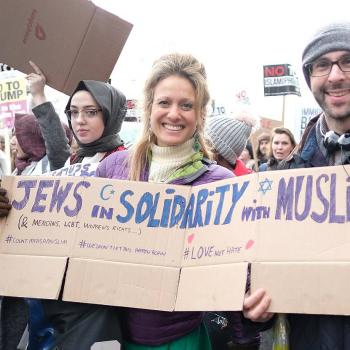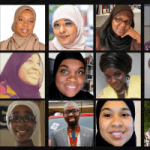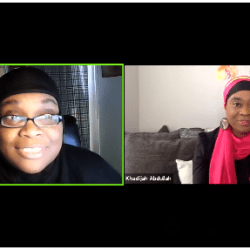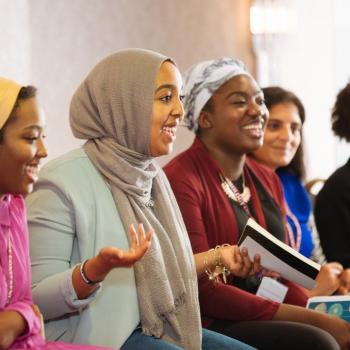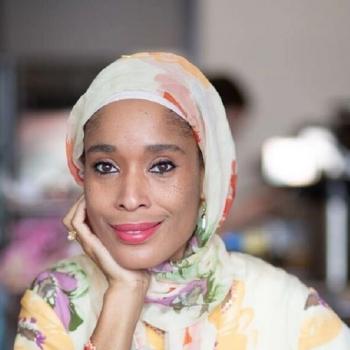Committing to Conversations about Racism
Being a Muslim, in and of itself, does not exempt anyone of us from the responsibility of actively addressing racism. Thinking “but I’m a good person” or “but I have friends of many backgrounds” or “my child is mixed” or “my partner is a person of color,” without actually actively doing something about racism especially in its covert and systemic forms, is not enough. Not intentionally learning about and addressing racism (in all its manifestations) means we are complacent in allowing it to persist.
Perhaps one of the reasons that you don’t often engage in conversations about racism is that you have done so in the past, but the conversation didn’t turn out well. Perhaps you wanted to show that you sympathize with People of Colour and gave examples of your experiences of being treated negatively as a White convert, but that was the start of the conversation going downhill. That is because, in reality, your example in no way compares to racism experienced by People of Colour and shows a lack of understanding the scale of racist oppression.
What a person engaging with you in a conversation about racism wants to know is that you are listening and willing to hear what they are saying. They want to know that you are ready to expand your understanding of racism, particularly its daily and life-long impact on People of Colour, rather than sticking to the same narrow definition of racism that White people have been typically socialized to believe or making the conversation about yourself. Don’t let any past conversations that did not turn out well deter you from all conversations about racism.
You may have also come across discussions online about the concepts of White privilege and cultural appropriation, which may have also turned you off. You may have felt defensive and that those concepts do not apply to you. Don’t let terms you are uncomfortable with or don’t fully understand, turn you away. I encourage you to have an open mind. These subjects are not easy to discuss, but they are necessary to comprehend.
It’s important to see these discussions as a means to learn and understand, rather than to debate and challenge. Recognize that the person speaking with you is also investing a lot of energy in this conversation and wants it to turn out well. Try your best not to become defensive (for instance, avoid saying, “Not all White people!”), which will derail and shut down the dialogue and destroy opportunities to increase your understanding.
Challenging oppression and opposing racism is a clear Islamic value. As White Muslims, we straddle two identities – one being our religious identity and the other, our cultural one. Hearing comments that make us feel like people are lumping all White people together can make us feel like we do not want to engage in conversations about racism, curl up and shut down, but that is the exact opposite of what we need to do — of what we are obliged to do — of what our actual nature as humans calls us to do. The bigger picture is that we are called by our Creator to create a just society, and we all have an obligation in doing so as well as a role to play.
The important thing to remember is not to take the conversation personally. We all have room to grow and learn — that is true for everyone. The objective is to address systems of oppression, inequality, and injustice that have been in place long before we were born and to which we have a key role to play in purging from our society.
Your next steps don’t need to be big or public; the first step is seeking knowledge to broaden your understanding of these issues.
Some places to start:



